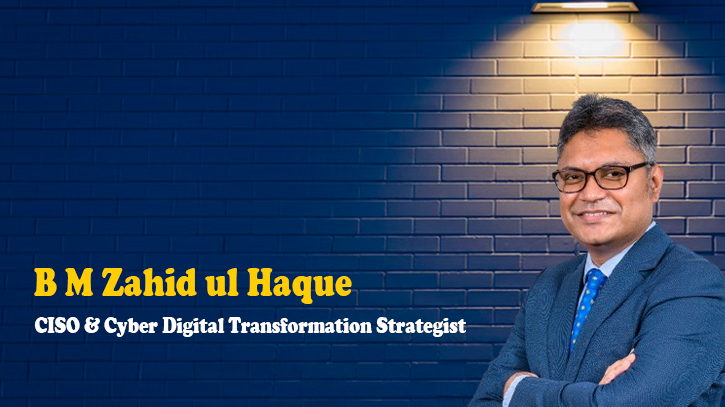
Photo : Messenger
In today's era of unprecedented technological innovation, the concept of a "smart nation" has taken center stage. It represents a vision where cutting-edge technologies, including the Internet of Things (IoT), artificial intelligence (AI), and big data analytics, are leveraged to transform the fabric of society. Smart nations aim to enhance public services, healthcare, transportation, and urban living through data-driven solutions. However, the journey to realizing a smart nation is fraught with challenges, as the increased reliance on technology exposes these societies to evolving cyber threats.
Smart nations epitomise the fusion of technology and governance to improve the quality of life for their citizens. Smart cities within these nations harness technology to streamline urban living, optimise the use of resources, and enhance public services. Simultaneously, the pathway to smart nations is laden with challenges, predominantly stemming from the complex and interconnected nature of these societies. This interconnectedness, while offering numerous benefits, also exposes these nations to a spectrum of cyber threats. These threats pose a significant risk to critical infrastructure, data privacy, and the integrity of digital ecosystems.
Imagine a smart city's power grid falling prey to a cyberattack. Such an attack could result in a widespread power outage, affecting essential services, from healthcare and transportation to emergency response systems. The real-world example of the cyberattack on Ukraine's power grid, which left hundreds of thousands of people without electricity, underscores the need for robust cybersecurity in protecting critical infrastructure.
Furthermore, smart nations accumulate vast amounts of data, including sensitive healthcare records and transportation logs. Without effective cybersecurity measures, these data repositories become tempting targets for cybercriminals. The cyberattack on Singapore's health system, which exposed the health records of 1.5 million citizens, serves as a stark illustration of the far-reaching consequences of data breaches.
The city of Atlanta, known for its smart city initiatives, fell victim to a ransomware attack. This attack crippled critical city services, including the court system, police department, and vital infrastructure. Cybercriminals demanded a substantial ransom in Bitcoin to unlock the city's data. The incident highlighted the vulnerability of smart cities to ransomware attacks and the need for robust cybersecurity.
The city of Bristol in the UK, renowned for its smart city projects, faced a vulnerability in their smart city platform, allowing hackers to manipulate data from various sensors, including those used for traffic management and environmental monitoring. This demonstrated that even the most advanced smart cities can face cybersecurity challenges.
Seoul's smart city initiative suffered a significant data breach that exposed personal information of citizens, including financial data and health records. The breach undermined public trust in the city's data-driven services and highlighted the need for stringent data protection measures.
Additionally, smart cities heavily depend on IoT devices, ranging from traffic sensors to smart meters. These devices, if left unprotected, can be exploited by malicious actors, potentially causing traffic chaos and accidents. San Francisco's extensive use of IoT devices in areas like transportation and public safety made it susceptible to IoT vulnerabilities. A vulnerability in the city's IoT infrastructure allowed hackers to manipulate traffic signals, leading to traffic congestion and safety concerns.
Smart cybersecurity represents a multifaceted and adaptive approach to safeguard a smart nation's digital infrastructure. It encompasses advanced technologies, real-time monitoring, adaptive strategies, and compliance with cybersecurity regulations. For instance, the U.S. Department of Homeland Security's (DHS) Continuous Diagnostics and Mitigation (CDM) program offers real-time protection against cyber threats for federal agencies, demonstrating the importance of government initiatives in ensuring national cybersecurity.
Data breaches have become a common concern, prompting regulations like the European Union's General Data Protection Regulation (GDPR) and the California Consumer Privacy Act (CCPA) to safeguard individual data. These regulations require organisations to implement robust cybersecurity measures to protect personal information, ensuring privacy and data integrity.
The Mirai botnet attack exposed the vulnerability of IoT devices to cyberattacks. Smart cybersecurity solutions can detect and prevent such attacks on IoT devices, preserving data integrity and device functionality. Solutions like Operational Technology Security, Cyber Asst Attack Surface Management, or IoT Security Platform specialise in identifying and protecting against IoT device vulnerabilities.
The Stuxnet malware attack targeting Iran's nuclear program highlighted the need for real-time threat monitoring and adaptive strategies. Multiple security firms employ artificial intelligence and machine learning to identify and respond to emerging cyber threats in real time, demonstrating the importance of staying ahead of cyber adversaries.
Singapore's Cyber Security Agency (CSA) serves as a model for building public trust in a smart nation's digital ecosystem. CSA collaborates with government agencies and industry partners to protect critical infrastructure and enhance public confidence in the security of digital services. The European Union's Network and Information Systems Directive (NIS Directive) mandates that operators of essential services maintain a high level of cybersecurity, demonstrating the importance of regulatory frameworks in enhancing cybersecurity.
To successfully construct a smart nation, governments prioritise smart cybersecurity as a fundamental component of their digital transformation strategy. This necessitates investments in cutting-edge cybersecurity technologies, the cultivation of a culture of cybersecurity awareness, and the development of a highly skilled cybersecurity workforce. Collaboration with the private sector and international allies can further enhance a nation's cybersecurity capabilities.
The realization of a smart nation is intrinsically linked to the robustness of smart cybersecurity. As governments continue their journey towards creating more connected and intelligent societies, they recognise the pivotal role of cybersecurity in achieving their goals. By prioritizing cybersecurity and implementing comprehensive strategies, nations can create safer, more resilient, and genuinely smart futures for their citizens.
The writer is an Experienced CISO and Cyber Digital Transformation Strategist
Messenger/Disha








